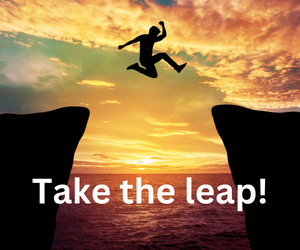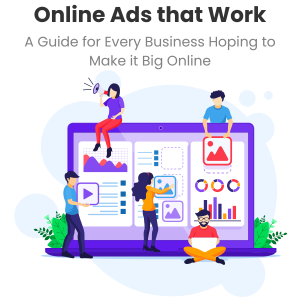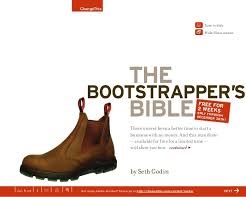 |
Career Transitioning - A Guide |
We are living in a very transient world where things are constantly changing and shifting. Many years ago, petroleum engineering was one of the most lucrative professions to jump into. With the oil boom days now over, with so much talk about climate change and the need to move from fossil fuels to alternative sources of energy, that area of specialty is dying a natural death and people in that area must transition to other areas. That is one typical example of how the events of the times we are living in, is affecting career choices, and promoting career transitioning.
There are so many reasons why people want to transition from one career to another career. It could be that your time is up in one career. It could be that you are inspired by other people making successes in other careers. It could be for monetary reasons. It could be just that you feel like; let me have a go at something new, something adventurous. The reasons are numerous and there is no right or wrong time, although, the timing could be perhaps better chimed. However, having said that, it’s always good to make that switch, or start making that switch before it gets too late.
Considerations
There are a couple of things to put into consideration when wanting to make a career transition.
- The first, and most important thing is to do a thorough research. This research starts with having a conversation with yourself to find out ‘why do I want to make this switch, this career change?’
- After having this robust conversation with yourself, you then need to do extensive research by searching resources, internet, people you know, who are in that career path you hope to dive into, who have made successes, social media profiling of people in that area, course providers, etc.
What Do You Need to Make This Switch?
- Roadmap: You must plan with timeframes. Having a road map does not mean that things will go according to plan, it may or may not. The roadmap is a living document. It means, it is subject to tweaks and changes.
- Self-Evaluation: Do you need to gain some new skills? Reskill yourself? Upskill yourself. Do you need to get some certifications? You might need to probably enroll for one or two taster courses to see what it feels like. You might even want to volunteer in that career pathway you hope to switch into to see, hey, what does it feel like to be here? Things like that!
- Clarify Your Purpose: You must convince yourself that, you know what, I'm going to have to make a dive into this area. The minute you convince yourself that this is the pathway to follow, then you must have a plan, a strategy on how to achieve that transition within a particular timeframe.
- A Skill Audit: It is highly recommended as a starting point that you do a skills audit of yourself. What are the skills set required for this new pathway. What are the transferable skills you have and what new skills do you need to acquire? You might need to gain some new skills, so you might need to take courses or be an apprentice. If you need to take courses, you may want to do some research on courses and course providers because there are so many course providers out there. Read reviews to know what people are saying. Get word of mouth feedback from coworkers and friends. If possible, get people who have taken courses from these course providers to see which one is the best option for you based on your budget and timeframe.
- Make the Investment: It will cost you time, money, and, sometimes, convenience and sweat. You also must go the extra mile to surround yourself with the right people. Join relevant online communities (there are so many of them now). Take advantage of the opportunities social media has provided where people could have meetings, robust interactions, and discussions in their chosen areas. Telegram, WhatsApp, LinkedIn, Facebook, Instagram etc. are some examples. When you join a group, ask for the rules of engagement, observe how people in the group interact first before you start making contributions. Be sure to be an active participant.
- Set Time Aside for Personal Learning/Development: You must set time aside for yourself to be learning every day till you get to your destination. Make YouTube a friend. Befriend Google and some sites that offer free articles/resources and reading materials. For those who believe in the Divine element, you must believe in yourself that you are going to make it. Once you believe that you are going to make it, you will make it. It may take time. It may not. Whatever is the case, you must be persistent. Keep learning. When you feel you've gotten some sufficient skills set to launch out, take the plunge.
- Package yourself. You don't want to be like the case of von Gogh, the Dutch painter, who despite being such an amazing painter, no one got to know about him until after his death because he did not know how to promote and market his Art. You must package yourself in such a way that, at your first Port of Call, people want to see more of you. What is this first Port of Call? Your CV, your LinkedIn profile, your Facebook, or Instagram page. Anything that sells you, that portrays you, your brand, your skills, your services. That is what will speak for you first, before people even invite you to have a conversation with you. This is where the work lies. Get in touch with people who have been successful in marketing and promoting themselves so that you can learn and duplicate the same for yourself. Your CV must stand out. Your first Port of Call must stand out. Before you know it, earlier than later, you will transition to your desired career path.
Even after you land that job, or transition to that new terrain, continual improvement must be a well-guarded part of your career growth and development strategy.
All the very best wishes.
Related Articles

|
Online Ads that Work – A Guide for Every Business Hoping to Make it Big OnlineIn the digital era, where attention spans are shorter than ever, capturing the interest of potential customers can feel like aiming at a moving target. For businesses looking to grow, online advertising presents a powerful opportunity to reach audiences in a way that’s targeted, measurable, an [Read more]
|
Posted: 5 months ago |

|
Turning learning right side up: Putting education back on track
Education should be a lifelong enterprise, a process enhanced by an environment that supports to the greatest extent possible the attempt of people to "find themselves" throughout their lives, For too long, we have educated people for a world that no longer exists, extinguishing their c [Read more]
|
Posted: 15 years ago |

|
The Bootstrapper’s BibleThere has never been a better time to start a business with no money. And this manifesto will show you how. This manifesto is based on The Bootstrapper’s Bible, a book I wrote a few years ago. What I’ve done is divided it into short sections, so you can find the little kernel of insight [Read more]
|
Posted: 16 years ago |


